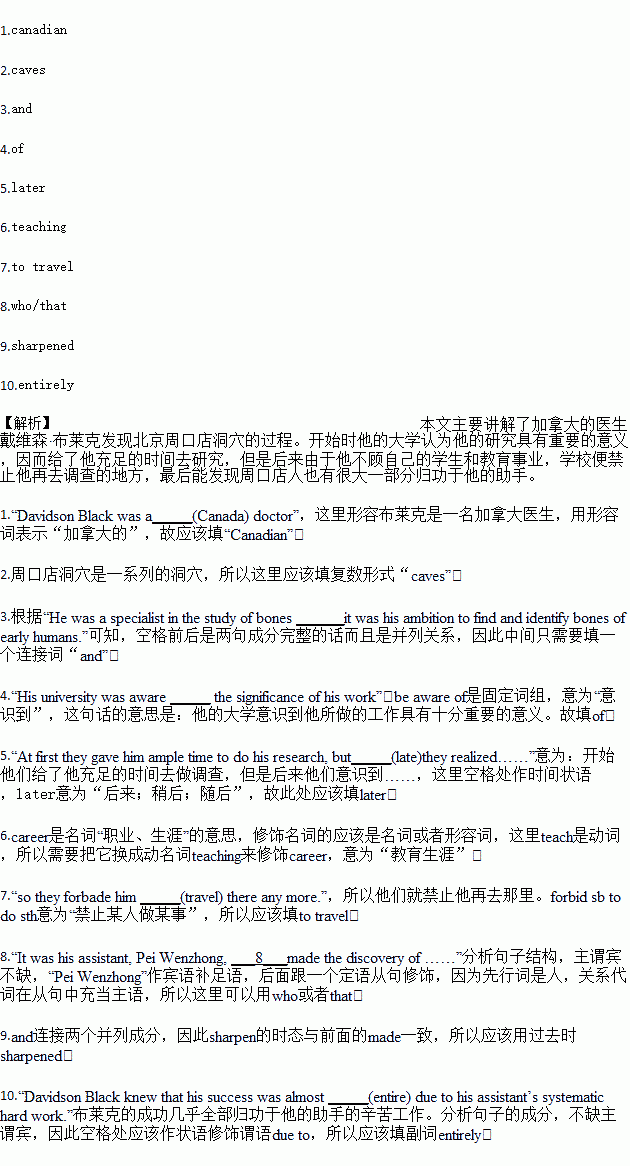题目内容
Davidson Black was a1.(Canada) doctor who organized the excavation that led to the discovery of the bones in the Zhoukoudian 2.(cave) near Beijing. He was a specialist in the study of bones3.it was his ambition to find and identify bones of early humans. His university was ware4.the significance of his work. At first they gave him ample time to do his research, but5.(late) they realized he was prepared to pursue it regardless of his students’ needs and his6.(teach) career, so they forbade him 7.(travel) there any more. It was his assistant, Pei Wenzhong, 8.made the discovery of these primitive bones and 9.(sharpen) tools. Davidson Black knew that his success was almost 10.(entire) due to his assistant’s systematic hard work.
练习册系列答案
 名校课堂系列答案
名校课堂系列答案
相关题目

